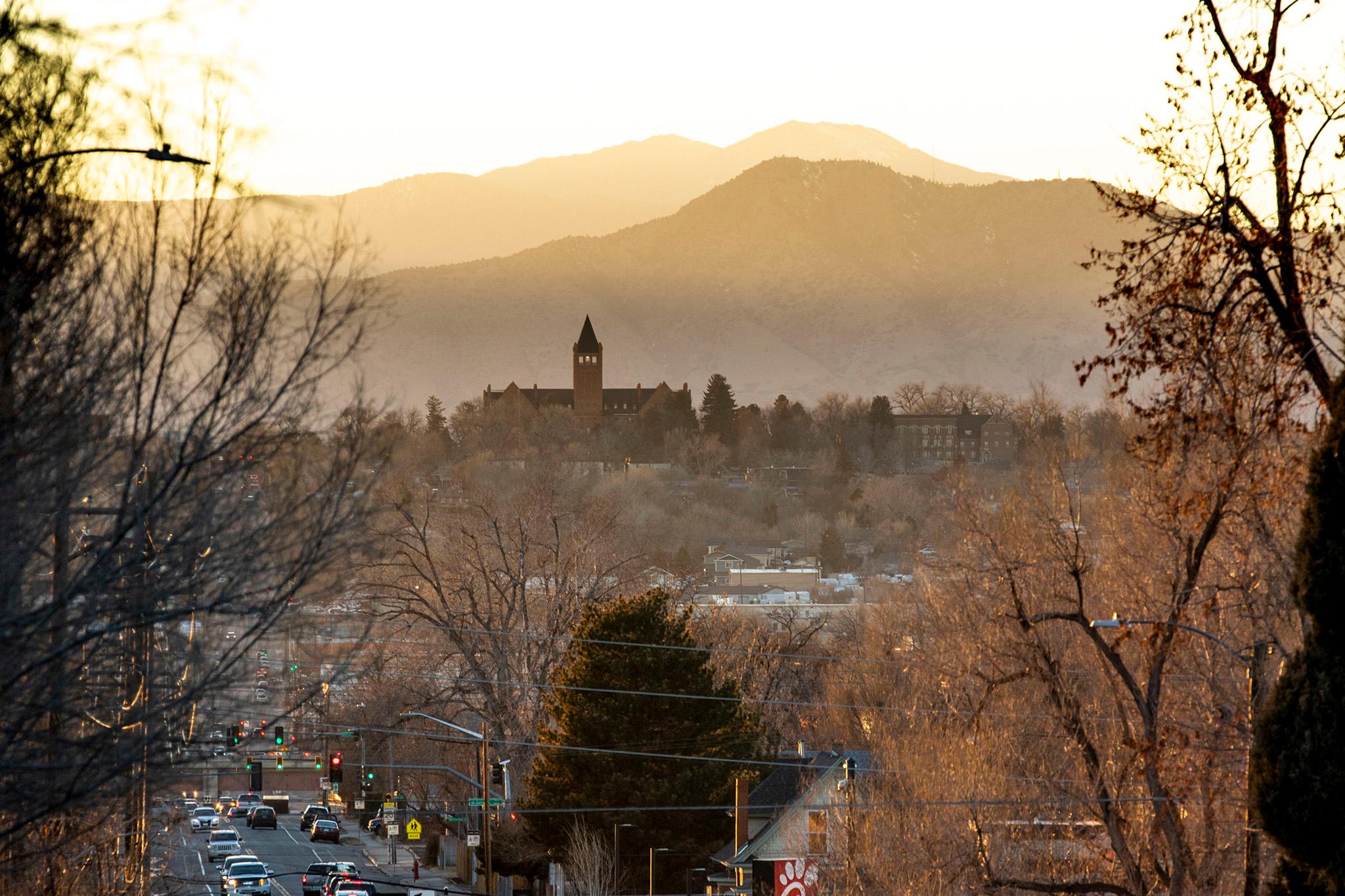The administration tower on the Loretto Heights campus rises 165 feet above southwest Denver.
Mark Witkiewicz, principal at Westside Investment Partners, said during a recent community meeting that he's heard from folks who recall seeing the tower while driving along U.S. Highway 285 in southwest Denver. Westside Investment Partners bought the campus in 2018 and intends to redevelop it.
"One of the things that they would always look for, is they'd look for that tower coming down 285," Witkiewicz said. "When they saw it, they knew that they were close to home, which I think is just so special."
Westside intends to maintain that sense of place in its redevelopment plans. It's the reason Witkiewicz said the company, which is also designing the project and owns the campus through its entity ACM Loretto VI, has hosted monthly meetings letting the public offer its thoughts about what could replace the old Catholic school.
"It's not about changing the neighborhoods, it's about enhancing the neighborhoods," Witkiewicz said during an interview with Denverite.
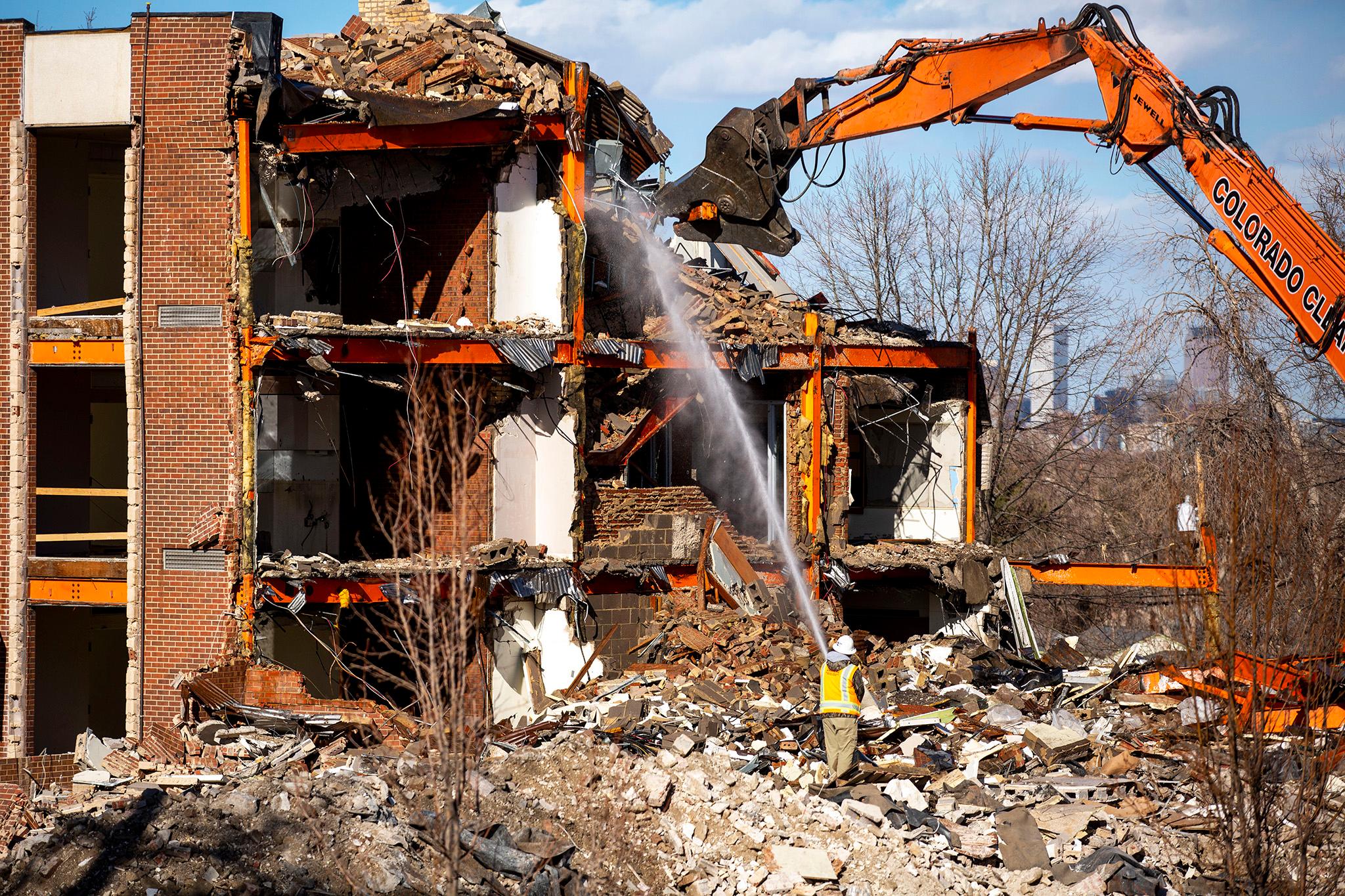
The project is approaching a major milestone.
Westside submitted a rezoning application on Jan. 25, which will be heard by the city's planning board in March. If the board OKs the application, it will set in a motion a process Westside hopes will conclude with Denver City Council approving the rezoning in May. The city approved a development plan for the former school campus in September 2019. The plan would add housing, some affordable, to the campus but also maintain its character, including preserving and reusing historic structures. While City Council approved the plan in 2019, it wasn't a unanimous decision. Councilmember Candi CdeBaca echoed comments from other community members who said Latinos and other people of color had not been properly consulted when the plan was being drafted.
The 72-acre campus on Federal Boulevard includes 15 historic buildings and structures from a school founded by the Sisters of Loretto in 1891. It was later home to Loretto Heights College and finally Colorado Heights University, which closed in 2017. Sixty-two Sisters of Loretto nuns are buried on the campus.
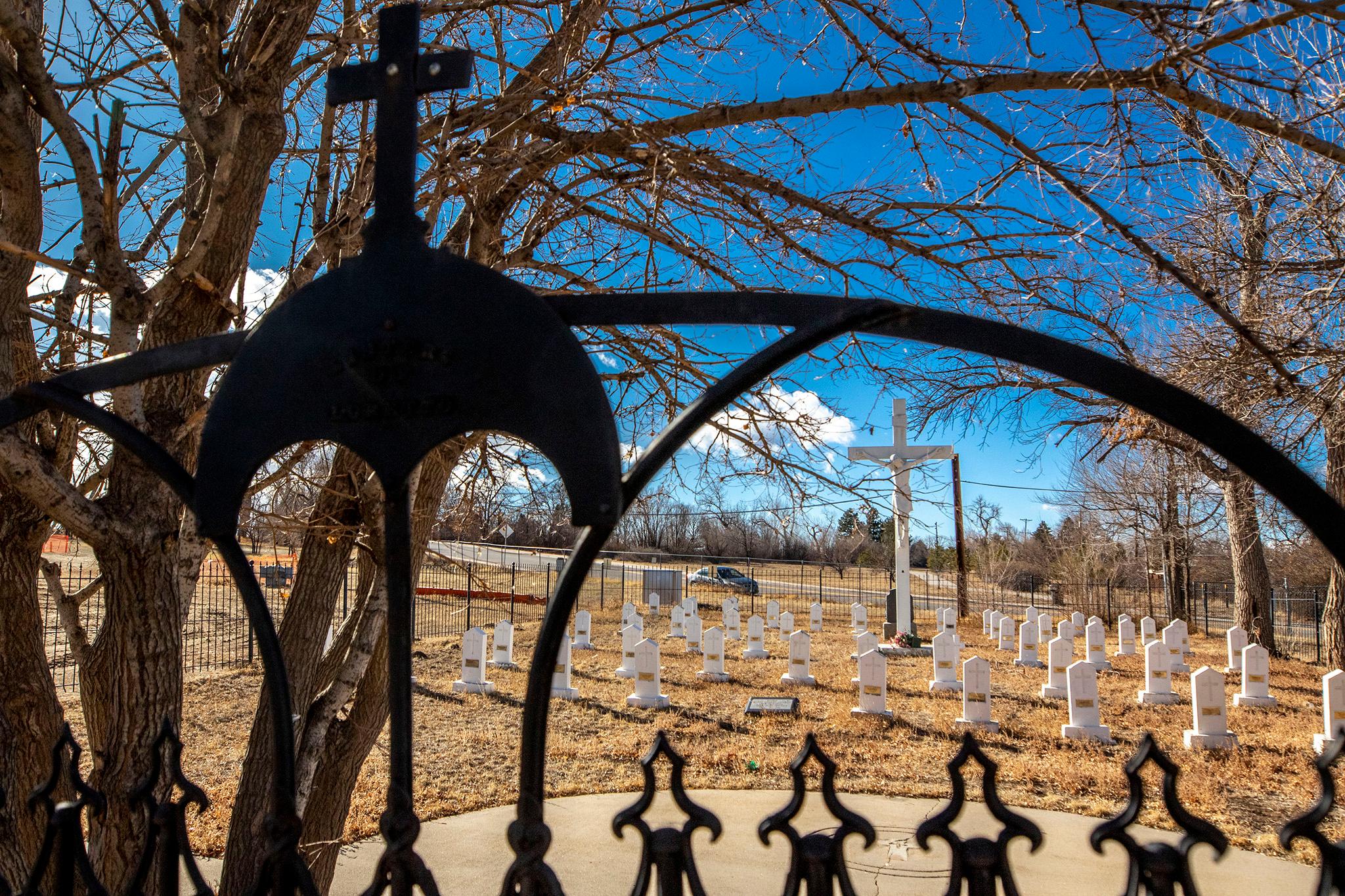
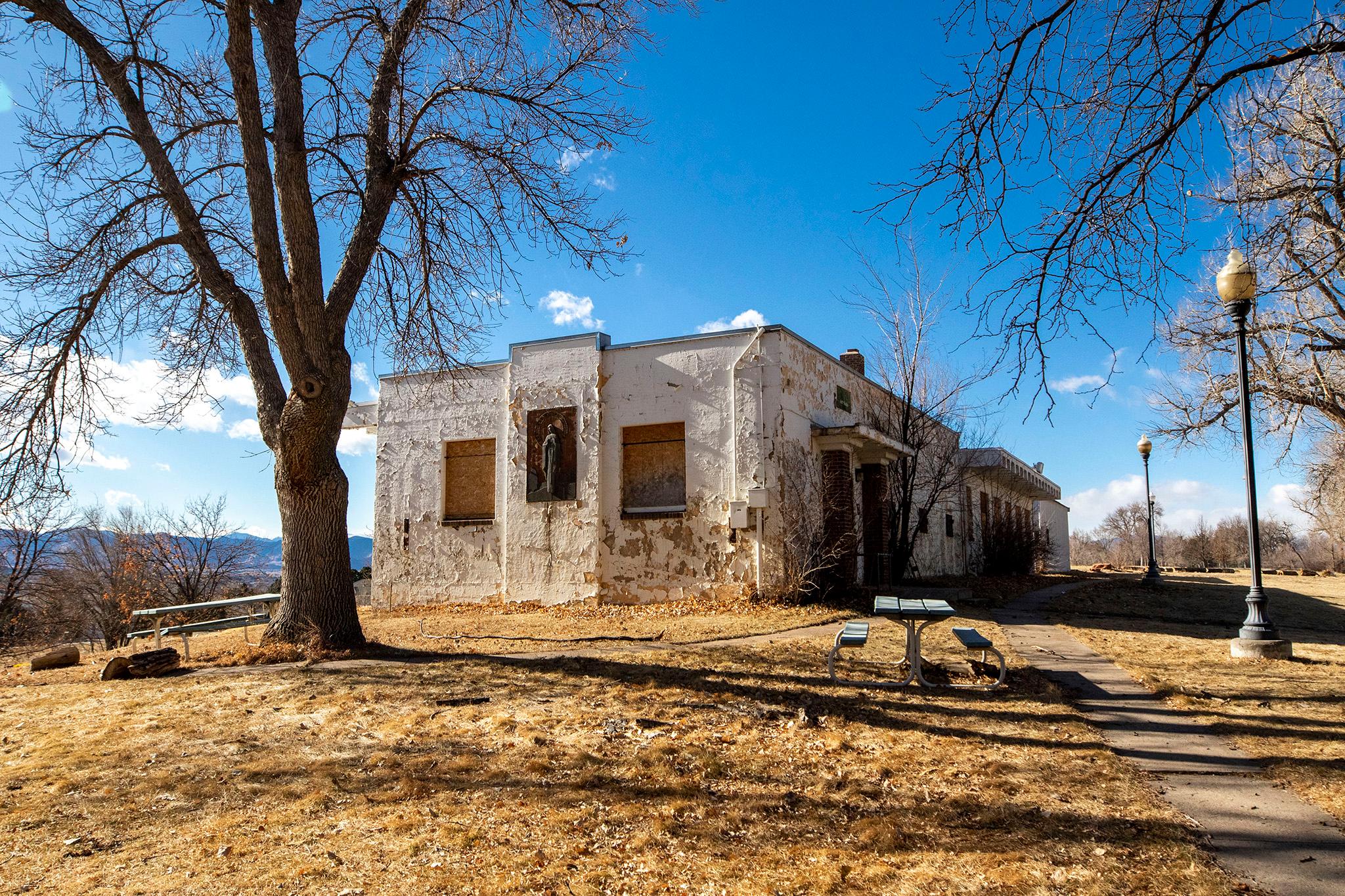
Councilmember Kevin Flynn, who represents the area, said the redevelopment project was "thrusted" on his plate after Colorado Heights University closed. He said he's embraced it, envisioning a gathering place in southwest Denver for people who live there and visitors alike.
He called the tower on the campus a "logo of southwest Denver." But he admitted that the campus's unique attributes have also drawn out the redevelopment process.
"My community is asking for an awful lot," Flynn said. "That's what's made it so difficult."
People have asked that Westside maintain the campus's open space and village-style concept. They've also asked for affordable housing and for upgrades to an aging theater. It's been difficult to strike a balance between what Westside and the public wants, Flynn said. One idea often ends up pulling resources from another.
Witkiewicz said the city didn't require Westside to continue holding public meetings after the development plan was approved in 2019. He said the company wanted to continue getting ideas, which is why, following a four-month pause prompted by the pandemic last year, monthly public hearings on the project have continued since August, with the latest one coming this week.
Westside's rezoning application includes three zoning code changes.
Witkiewicz said one is based on an existing city code, and the others are custom changes the company is requesting to complete the project. The complexity of the campus, including its topography and the historic relevance, are some of the reasons Witkiewicz said it took a while for Westside to submit its application.
Witkiewicz said when the company started looking at zoning codes, none existed that were "even remotely close" to what Westside wanted in order to build. The company worked with the city's planning, landmark preservation and forestry offices to come up with the custom zoning codes that would help keep "the spirit of the campus" intact, Witkiewicz said, as well as allow features like housing that faces green spaces rather than streets or roads.
"It had to be right," Witkiewicz said about the application.
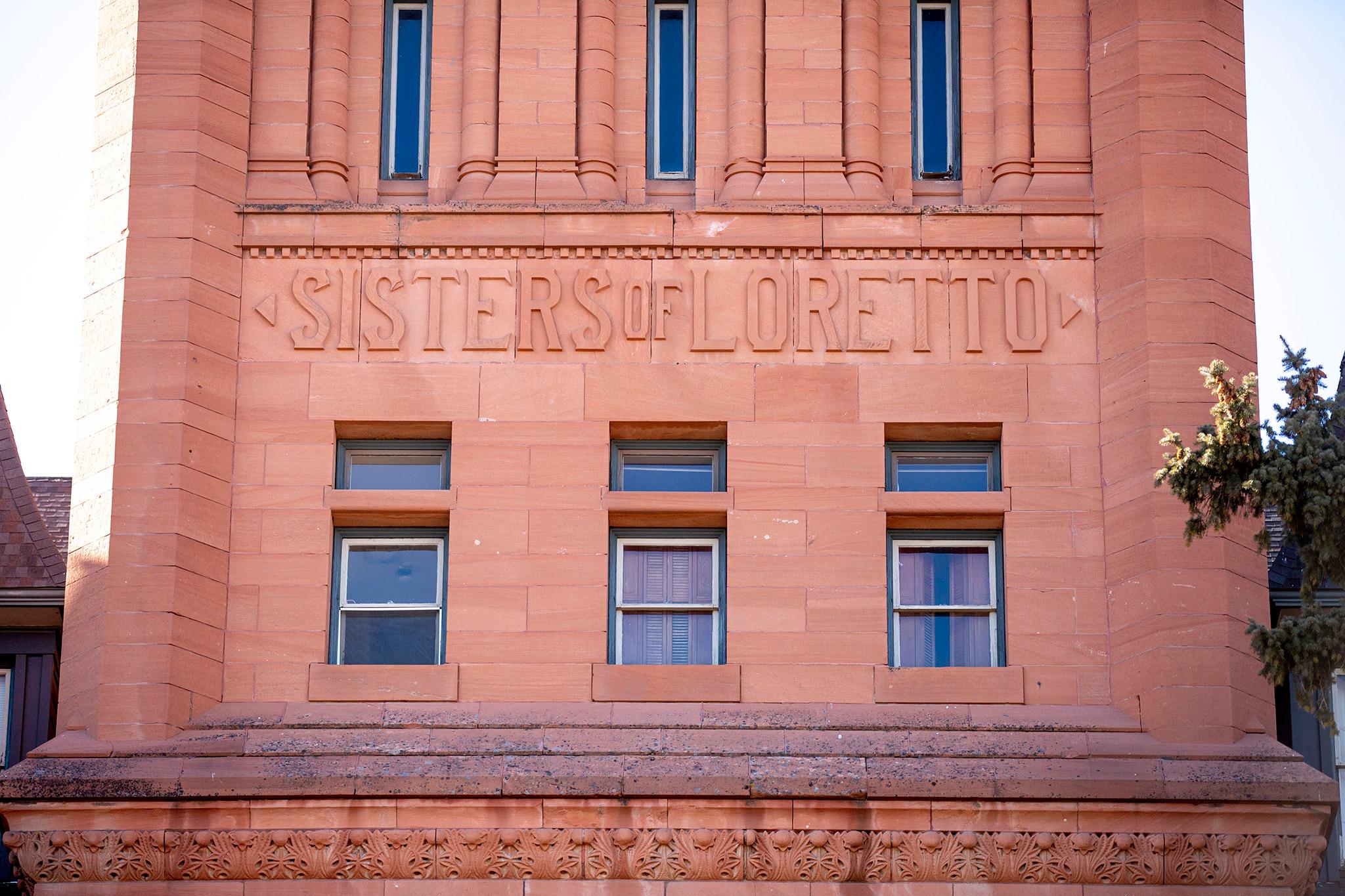
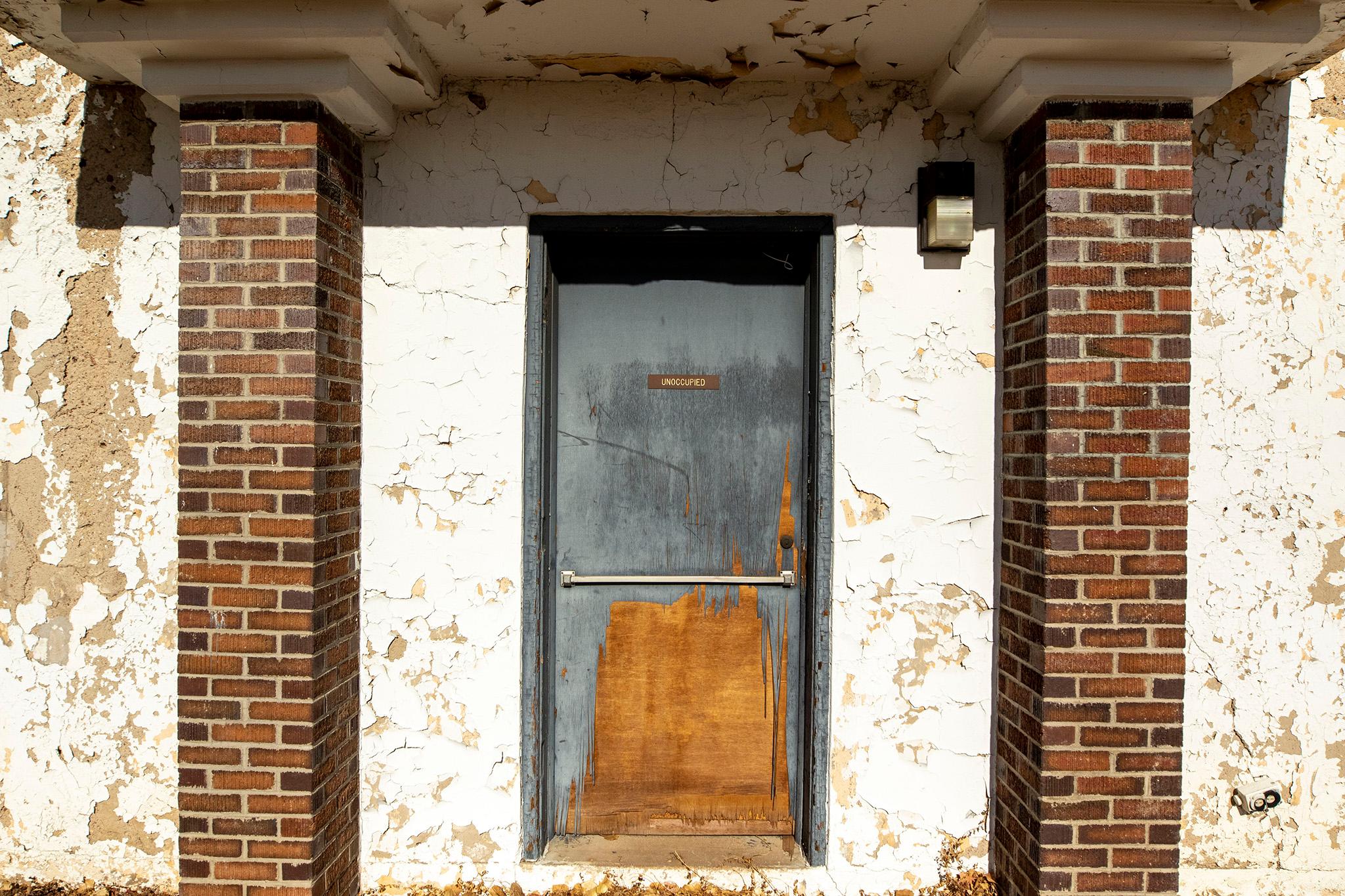
Westside also asked for more leniency in the kinds of commercial spaces it can bring in. Zoning for school campuses only allows for restaurants and book stores. Witkiewicz said Westside requested more general commercial zoning, like other businesses (he gave an accounting firm and a dance studio as examples).
Construction has started on the campus at Pancratia Hall, which Witkiewicz said Westside sold to Hartman Ely Investments last October and will be developed for affordable housing. The 72 units are being redeveloped with help from a $3.3 million loan from the city. Witkiewicz said this project should be completed by the fall, and people could start living there by year's end.

